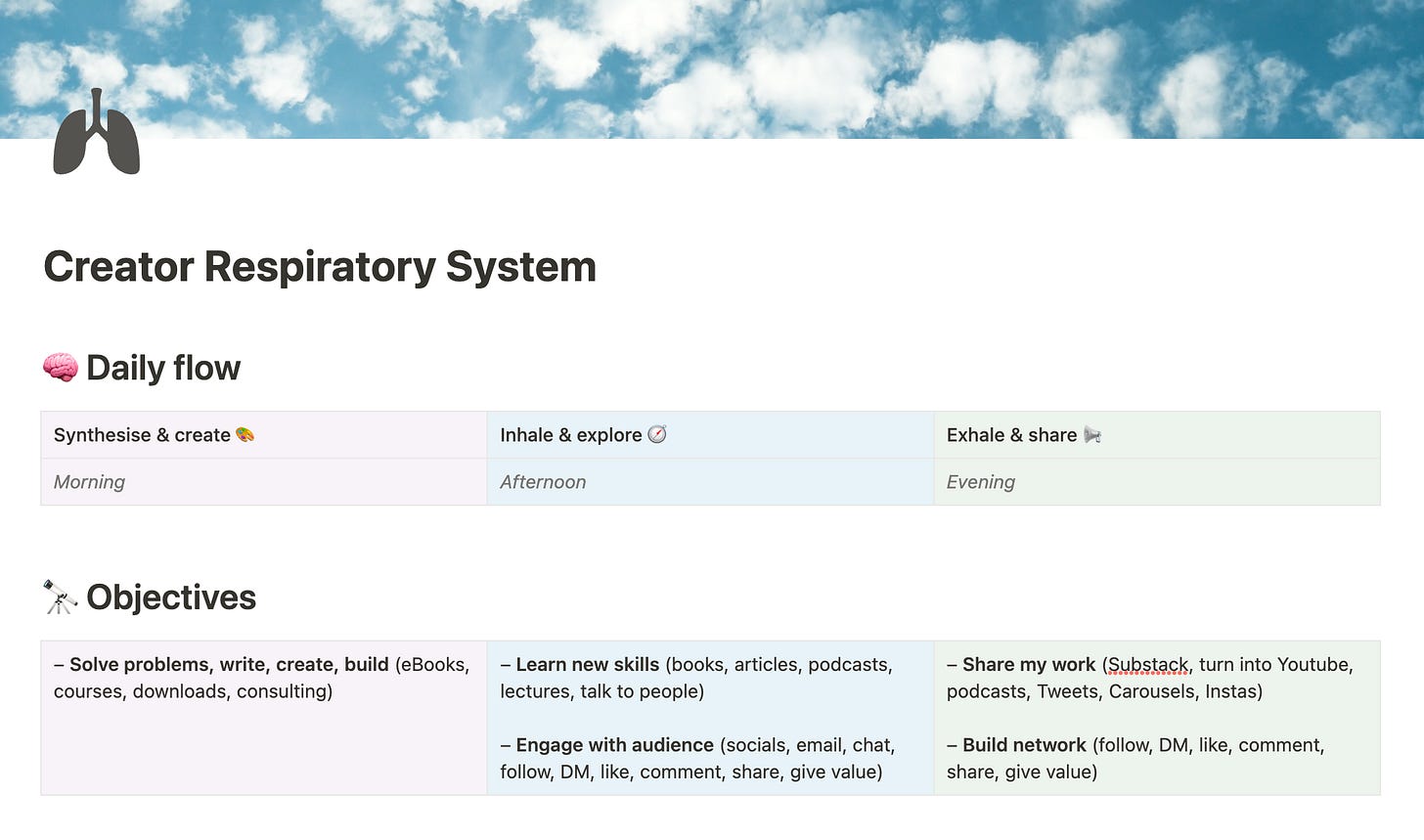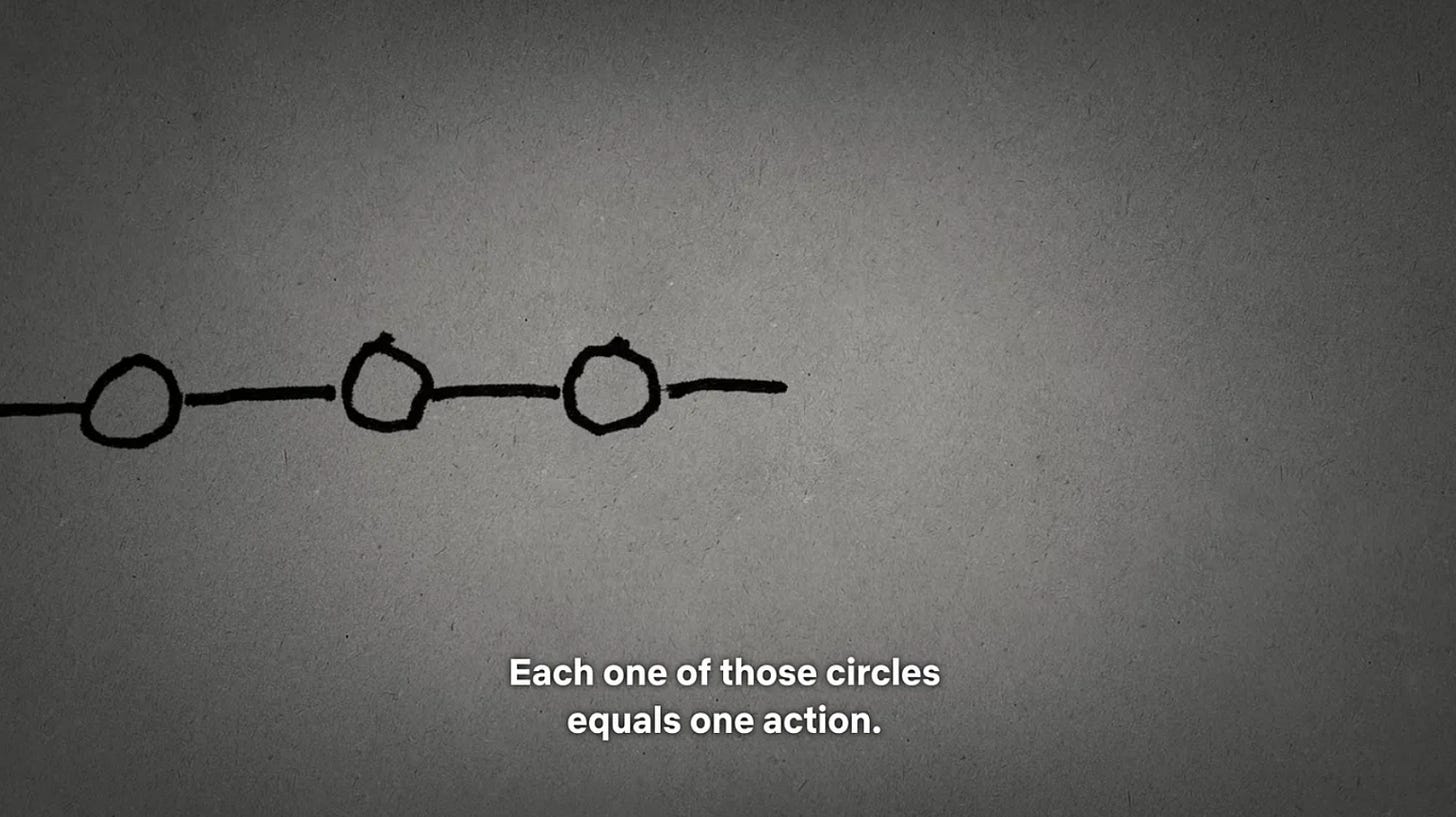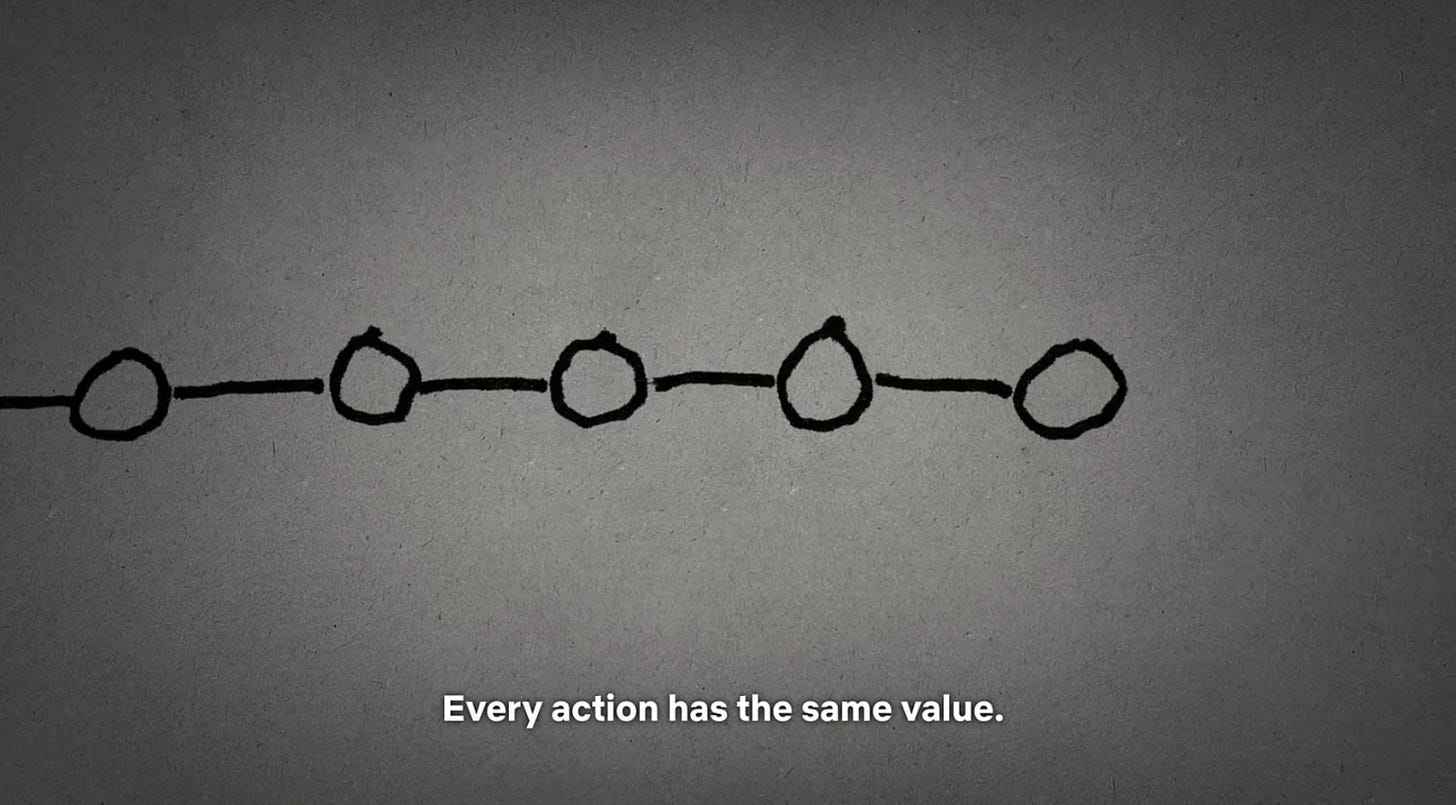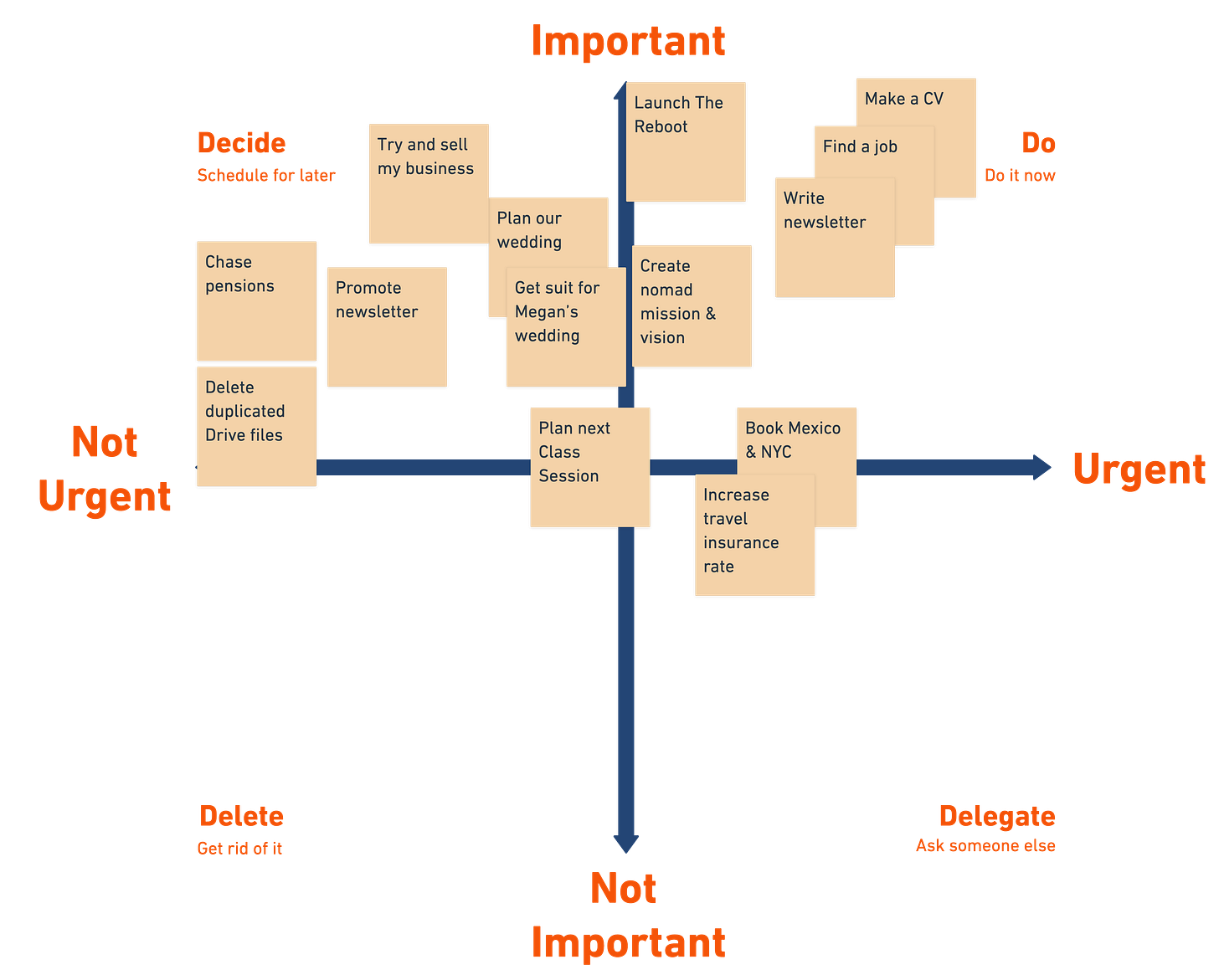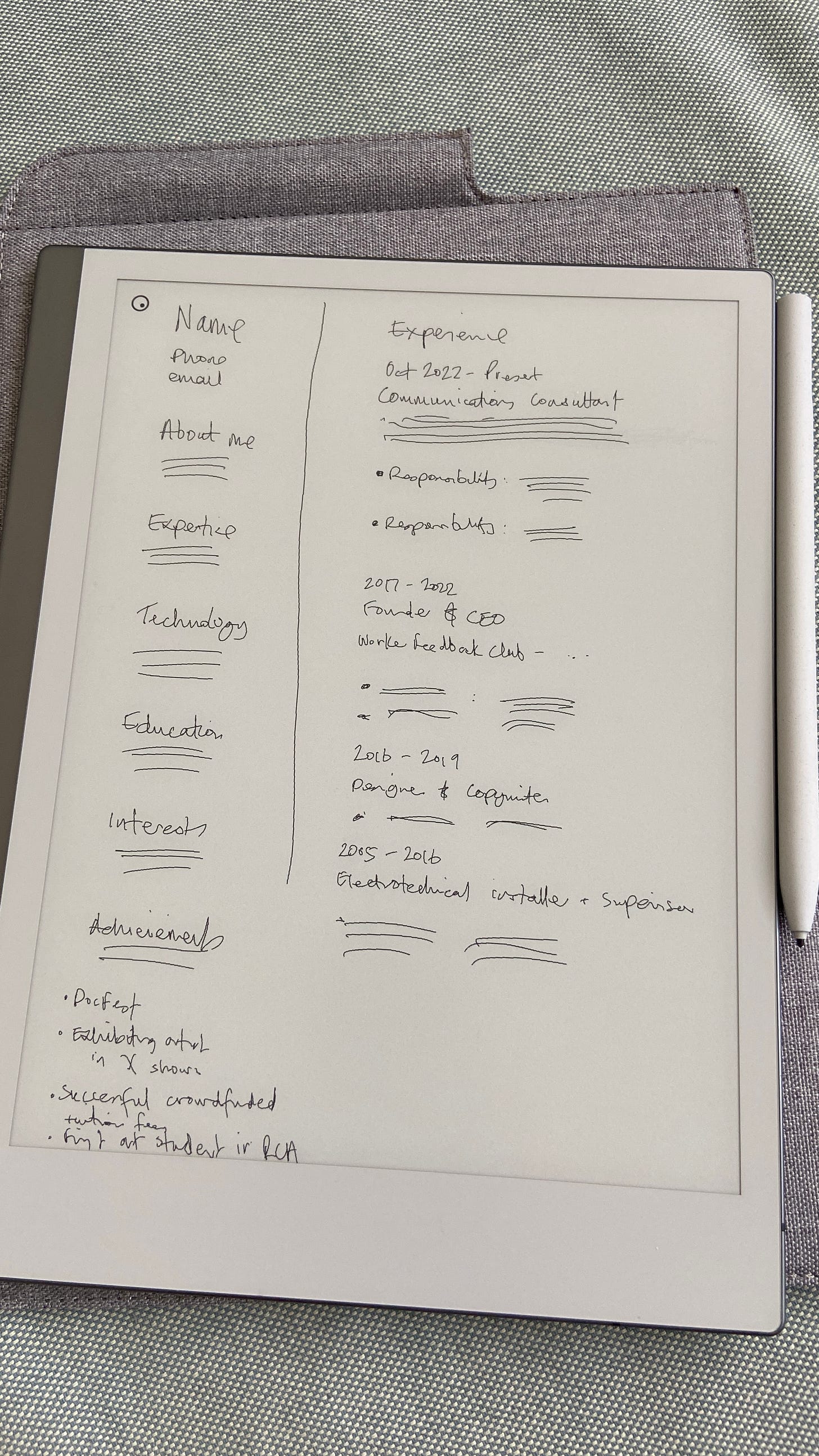Job Loss Survival Guide
Strategies for Coping and Thriving
Is there ever a good time to lose your job?
I asked myself this question on Monday. Sitting in our Airbnb in the Dominican Republic, while the thunderous racket of carnival vuvuzelas raged outside, I stared at what was essentially a "you're fired" email in my inbox.
It wasn't a full-time job but it was my only source of income – and a good income at that.
I found the job back in 2016 on a university notice board – "Hong Kong-based businessman requires transcriber" – and I was one of only five employees then, two of which were the founders.
In the course of working for Jason (not his real name) between 2016 and 2019, my job evolved from transcribing audio files to designing business strategy and effectively becoming his right-hand man. I worked 3-4 days a week because I wanted to protect the free time I needed to get my own startup off the ground.
Jason never stopped asking me to go full-time. They were growing like mad and wanted me to go all in to help soothe the growing pains. I've never told anyone this but I said no to countless offers of $100k+ salaries because I was committed to launching my own startup.
I did launch my own startup eventually, and when I raised VC funding in 2019 and was able to pay myself a salary, I left Jason's company amicably. He wished me well.
In 2022, my startup ran out of cash and I had to put it into hibernation to prevent us from losing everything. The dream was over. And I suddenly needed a job.
Jason hired me back on a part-time basis and I've been with him ever since.
But with a bigger team and more at stake, it meant less autonomy and fewer creative working processes. I found the business worked differently than it had before, and that my project-based skills weren't needed in the same way that they once were. Jason and I were at odds a lot of the time when discussing strategy. But that's how the cookie crumbles.
That said, I am happy to work for Jason as a part-time contractor. After all, me and Corina have chosen to spend the next couple of years vagabonding, and Jason's gig is ideal for enabling us to do that.
But as Mike Tyson once said, “Everybody’s got a plan till they get punched in the mouth.” Jason's email hit my inbox like a left hook and now I'm unemployed again, rather more suddenly than I would have liked.
I'm feeling overwhelmed, being here in a strange land where everything is unfamiliar, unpredictable and uncertain.
I want to use this week's newsletter to share some of the strategies I'm using to cope with the worry and overwhelm, and turn a difficult situation into an opportunity.
Hopefully they can help you too if you find yourself suddenly out of work.
Strategies for coping with overwhelm
Sam Altman, CEO of OpenAI, wrote a list of startup advice for Founders when he was President of Y Combinator. One tip is that Founders should only be:
1) talking to users
2) writing code, and
3) attracting staff and investors
Everything else is "a waste of time."
The simplicity of this advice has always appealed to me. I managed my own time in this way when I was a founder, using Trello to chunk all my tasks into leading, recruiting and selling:
Right now, I can use Altman's advice to focus on the most important aspects of my job search, prioritising talking to employers, making my CV and cover letters, and networking to attract job leads.
Dan Koe, an online Creator who's writing course I completed recently, proposes a 3-act day in which we fill, empty, and use our mind:
I have since made Dan’s framework my own, stuck it in Notion, and called it my "Creator Respiratory System”:
Incorporating Koe's 3-act framework into my job search routine through the use of my Creator Respiratory System can help me stay focused, productive and mentally refreshed throughout the day.
But what about the negative self-talk?
Whenever I was struggling with a thorny problem, my coach, Aidan, would say, "We fight the same two or three battles our whole lives, just on different terrain. So what common battle of yours is this?" Pursuing an answer to that question was always consoling and gave me clarity on the root cause of my discontentment, as well as a reassuring reminder that I've come through it multiple times before.
The disempowering thoughts and feelings that accompany this lay-off have their roots in a childhood event where I was excluded from my year group for being naughty in class. Being aware of this common battle helps me maintain some perspective on my current situation and see it for what it is: a need for employment, rather than a reflection of my character.
Can you think of a common battle you fight? If you zoom out and ask yourself, “What category would it go in?” you may be able to pinpoint its origin. Recognising and identifying the common battles we face in life can help us gain clarity and perspective during challenging times, such as when searching for new employment, and understand how best to approach it.
It can also help us realise that we are not alone in our struggles, and that others have faced similar challenges and come out the other side stronger.
Actor Jonah Hill recently made a Netflix documentary about his therapist, Phil Stutz, who shares a number of "tools" he uses with his clients. One is called the "String of Pearls." It's easier to move forward if we simply focus on adding the next pearl to the string – all pearls being equal in value.
“We want to say, ‘I’m the one who puts the next pearl on the string.’ That’s all, nothing else. That’s called the String of Pearls. And that’s probably the most important thing, motivationally, you could teach yourself. […] This is a matter of identity. ‘Who am I? I’m not great, I’m not shit. . . . I look at myself just in terms of the habits with which I take action.’ If there’s a failure—or a big success, by the way, either way—you’re gonna keep going. ‘I am the person that puts the next pearl on the string.’ That’s it.” – Phil Stutz
The "String of Pearls" tool provides a simple and powerful way to focus on the present and take action towards a goal, without being bogged down by past failures or the pressure of future success.
Reassuringly, Stutz explains that each pearl contains a little "turd," which is a reminder that our actions are never perfect, and that's OK.
💩
I've been working hard recently to try and undo a years-long commitment to perfectionism, which has seen me set impossibly high standards for myself (eg, trying to create and control the perfect culture at my company, or trying to write the perfect newsletter) but wind up feeling that I fell short. The "String of Pearls" helps me press publish and better steer a course between the precarious paradox of quality versus quantity.
The concept of the "turd" in each pearl of the string provides a helpful reminder to let go of perfectionism and embrace imperfection, enabling us to take action without being hindered by the fear of not meeting impossibly high standards.
When it comes to dealing with overwhelm, one of the best metaphors I've heard is that of the juggler. People often use the metaphor of the plate spinner to describe the busy worker. But I prefer the juggler. We are juggling a lot of balls, yes, but we only need to focus our attention on the ball that's about to hit the ground next. Once we've given it a thrust of energy, we can forget about it for a while and focus on the next ball.
The juggling metaphor is a more accurate representation of managing overwhelm than the plate-spinning metaphor, and it also highlights the impossibility of multitasking and provides a more accommodating approach to making chaos manageable.
With those strategies in mind, I can dive into some self-care strategies I’m implementing to help reduce overwhelm and keep myself in good shape.
Mastering the basics of self-care
Stutz stresses the significance of health behaviours such as exercise, diet and sleep when it comes to mental health. In fact, he estimates that a whopping 85% of the initial progress for someone with mental health issues comes from prioritising these "lifestyle" factors.
But sometimes even the basics can be difficult to maintain when you're not in a good place and you’re busy. I’m speaking from my own experiences here. Can you think back to times where you were on top of sleep, exercise and diet? How was your quality of life?
I'm currently doing a decent job of looking after myself. I’m going for regular runs and doing Joe Wicks. Joe even has some low-impact workout videos designed to avoid making loud noises, which come in handy when you're in apartments with wooden floors, paper-thin walls and uncompromising neighbours.
Our trusty noise machine is, hands down, one of the single best investments we have ever made in our health and wellbeing. This little gizmo ensures we get a good night's sleep anywhere, even here in DR during carnival week, where there's zero insulation from the fighter jet-like motorbike engines, incessant whistling, barking dogs and reverberant boomboxes passing our front door from morning till midnight.
The noise machine's effectiveness is as much psychological as it is physical. When you're being disturbed by unwanted noise, the real problem is that it's outside of your control. But when you have a noise machine, you get to decide when to fill your room with noise, and this reclamation of power renders all other noises irrelevant and results in reliably restful sleep.

Further insights I gained from coaching with Aidan have helped me align my workday with circadian rhythms. Research shows that our ability to think creatively is highest during our body's natural "peak" circadian hours, which tend to occur in the late morning and early afternoon.
One of the most useful things I've learned about myself is how effective I am in the early mornings, and by ring-fencing this time for my highest-leverage work (problem-solving, writing, creating, finding a job!), I'm setting myself up to win.
Sleep deprivation or disruption to my body's natural circadian rhythm would be antagonists to my job-hunt, so you can see just how important our little noise machine is.
In addition to exercise, hydration and sleep, I’m also trying as much as I can to do mindfulness practices like the 4-7-8 breathing technique: a simple and effective relaxation exercise. Here are the steps:
Inhale fully for a count of four
Hold your breath for a count of seven
Exhale completely through your mouth, making a whooshing sound, to a count of eight
Now that I’m laying the foundation for my physical and mental wellbeing, it's time to take action on finding a new job!
Action and meaning through prioritisation
One thing that’s helped a lot over the years is the Eisenhower Matrix – used to prioritise tasks based on their level of urgency and importance.
“What is important is seldom urgent and what is urgent is seldom important.” - Dwight Eisenhower
I've used the matrix above to give myself a prioritised to-do list:
1) Make a CV: Fact: because I've only ever worked as a contracting electrician, a freelancer or a Founder, I've never had my own professional CV, so I'm doing this for the first time!
In a handy coincidence, it turns out I can leverage the CV-building advice I gave to construction workers when I was doing things that don't scale during early user research for the business. The advice I gave workers, drawn from interviewing recruiters, included:
- Writing job descriptions using the 'Situation-Task-Action-Result (STAR)' framework to emphasise your value and impact
- Avoiding stylised formatting so your CV doesn't get snared by the automated CV-reading bots used by large firms
- Naming the document 'CV [your name]' so that employers can identify it at a glance when they're sifting through boatloads of applications
2) Find a job: At this point, I'll take pretty much anything provided I can do it from anywhere. Writing and editorial jobs are my first port of call. Do you have any leads you can throw my way?
3) Launch The Reboot lifestyle design programme: This is an exciting new project I'm doing in collaboration with John Hughes – a former mentor and creativity consultant whose sessions I always came away from feeling rejuvenated and inspired. If John and I succeed, it could end up becoming a key career move, creative outlet and income stream for me.
If you've been in work for 5+ years and you're interested in learning more about The Reboot, hit reply and let me know, or fill in our questionnaire and we’ll get in touch with you. Note: There are only 12 spots available.
4) Write the next newsletter: It's important that I keep practising writing and hitting publish, even when – especially when – I'm overwhelmed and don't feel like it. As Ronan Keating croons, "When the going gets tough, the tough get going."
But more seriously, I want deadlines and consistency to hone my craft. This is what the best writers do. James Clear published two articles a week for four years before writing his bestselling book Atomic habits. Morgan Housel published more than 1,000 articles before he wrote The Psychology of Money.
With my priorities set, my revised Trello board (or Threefold Focus Formula) now looks like this:
My revised 3-act respiratory schedule looks like this:
And the next pearl I'm threading on my string is to sketch the outline of my CV:
As for perfectionism – the voice of the oppressor – I'm taking small steps towards not picking up the turds in my work. Even though this newsletter is fairly lengthy, I'm shipping it without asking my friend and editor Will to check it, something I never would have willingly done before.
To lend my job applications more weight, I can leverage my Substack as a public-facing CV. Artists and writers like Austin Kleon and David Perell encourage us to "show our work" and "build in public" to demonstrate our personality, expertise and enterprising spirit to employers and hiring managers.
"Imagine if your next boss didn’t have to read your résumé because he already reads your blog." – Austin Kleon
Thus, my newsletters and side projects could serve as little recruitment consultants beavering away on my behalf, even while I sleep (but I gotta keep publishing!).
When my plan comes together and I find a job I really like the look of, I'm going to use the strategy that my first hire, Ben, used to land a job at my company. Despite his being less experienced than other candidates, Ben blew the others out of the water by going above and beyond the recruitment process: he audited our website and app and came to the interview with improved designs and copy.
Then when I invited Ben to a trial day in which I planned to ask him to interview a user, he'd already interviewed a user and came armed with the feedback. This, I thought, was how you land a job.
As I grapple with the challenge of losing my job during my quest to live as a digital nomad, I'm taking comfort in a brilliant book Corina's brother bought her for Christmas: Rolf Potts' Vagabonding, in which he talks about the critical role that work plays in vagabonding successfully:
“At a certain level, the idea that freedom is tied to labor might seem a bit depressing. It shouldn’t be. For all the amazing experiences that await you in distant lands, the “meaningful” part of travel always starts at home, with a personal investment in the wonders to come.“I don’t like work,” says Marlow in Joseph Conrad’s Heart of Darkness, “but I like what is in the work — the chance to find yourself.” Marlow wasn’t referring to vagabonding, but the notion still applies. Work is not just an activity that generates funds and creates desire; it’s the vagabonding gestation period, wherein you earn your integrity, start making plans, and get your proverbial act together. Work is a time to dream about travel and write notes to yourself, but it’s also the time to tie up your loose ends. Work is when you confront the problems you might otherwise be tempted to run away from.” – Rolf Potts
Losing my job has made me feel uncertain and vulnerable, but it's also an opportunity to find myself in the process. A chance to reassess my goals, values and priorities, and to make sure that my travels are not just an escape from my real life, but a discovery of my real life. I certainly feel more alive now!
If you know anyone looking for someone with my skill set (writing, art & design, entrepreneurship), then do put us in touch. I'd be glad to help you in any way that I can in return.
See you next time.
– Harrison
PS Corina wrote a poem about our first DR avocado, which she’s going to present at a spoken word night (the poem, not the avocado). I love it. Here it is:
Glistening under the strip lights. Should have had the foresight, the hindsight, to delight in the round and bright, The brown that’s not quite Brown, because I can’t tell if it’s brown or purple or black. All shining together one on top of another in a haphazard stack. Gently running my fingers over the edges, trying not to bruise The skin, so thin, what’s hiding within, where has it been, my mind begins to spin. Caressing it in my hands, it’s larger than one I’ve held in a while, Nothing compared to the sad shrunken lot in my local grocery aisles. Slowly we lower it into the cart, glimmering like a work of art. Out of the supermarket to be welcomed by the heat, Engines and horns blaring in the streets, potholes bigger than footballs under feet. Somewhere a lively merengue beat, a smell in the air, sticky and sweet. Children laughing in the backseat, on we walk along the concrete. Dreaming about when we’ll get to eat The star of the show, the reason we came all this way. Well not the only reason but I did pray For the day when I’d be sitting cutting open an avocado So large, beautiful and full of bravado. Tasting that delicate and indescribable flavour, Something to turn back to and always savour. That glorious fruit, full of love and tension. It deserves monuments, books and an honourable mention. My first Dominican avocado will not be my last But if you asked, I’d be flabbergast, unable to broadcast the contrast, how much of an enthusiast I am for this beautiful fruit, my love so acute, going back to the square root Of all I am and all I am not Of everything I thought and all that I’d sought From this land that is our temporary home, From this lifestyle that’s free for us to roam To meet new people and hear new stories. But most of all to eat avocados in all their glory.
Hey, you! Yeah, you! Want to help someone out? Spread the love by sharing this newsletter with anyone who needs a little pick-me-up after losing a job.

Still got some time? Discover how nuanced the world can be if we’re prepared to look →






